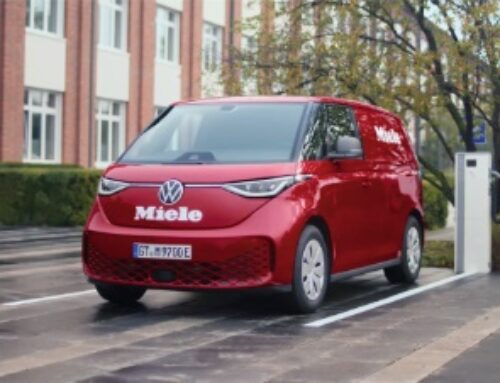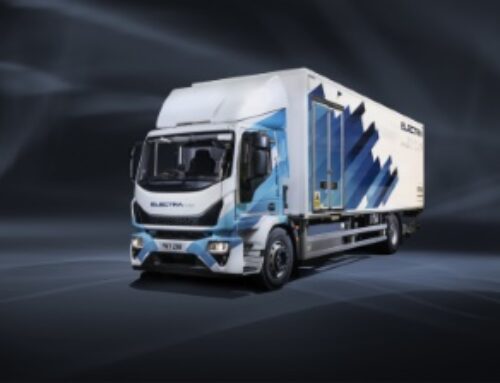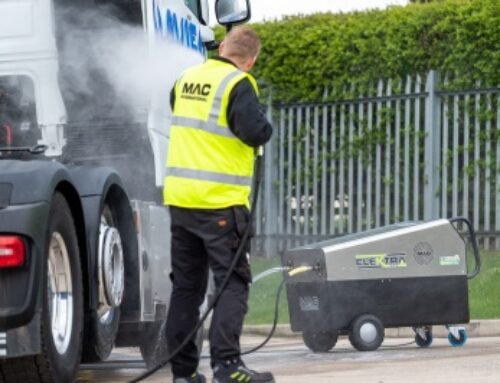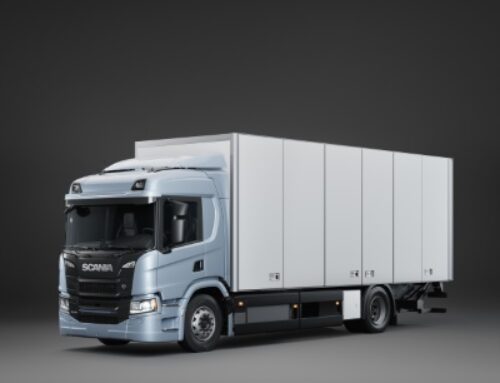Combating poor air with cleaner fleets
 Brian Worrall, director of corporate affairs at Certas Energy, offers his perspective on how fleets can affordably clean up their act with alternative fuels
Brian Worrall, director of corporate affairs at Certas Energy, offers his perspective on how fleets can affordably clean up their act with alternative fuels
In the wake of the T-charge introduction in London and the impending roll-out of clean air zones in five British cities by 2020, haulage companies are facing added pressure to operate lower emission fleets. So how can managers ensure their fleets meet these requirements without being crippled by logistical and cost implications?
The T-charge, also known as the toxin tax or emissions surcharge, stipulates that vehicles which fail to meet Euro 4 emissions standards will face fees of £10 a day when driving in central London – on top of the current £11.50 congestion charge.
While the charges levied by this legislation aim to reduce congestion and improve air quality, for haulage companies acting as the lifeblood of cities, transporting vital goods and services to businesses and communities, they represent an additional cost for an already margin sensitive industry.
So what does a low-emission future look like?
Whilst we are all aware of the impact that heavy use of diesel has on the environment, the reality is that the haulage industry can’t just switch off its reliance on diesel overnight, especially for businesses whose fleets and machinery rely on it to keep moving.
The good news is that there are a number of alternative solutions readily available to haulage companies looking to improve air quality.
Electrification is often regarded as the future of green and sustainable vehicles, with many commercial vehicle manufacturers recently announcing their intentions of going fully electric within the next decade.
However, the current state of technology means that electrification of entire fleets is not yet a viable option for many – reduced range, weight of vehicle issues, cost and availability of infrastructure to charge electric vehicles, all present challenges to efficiency and cost-effectiveness that make mass uptake in the technology in the immediate future unlikely.
Diesel vehicles that meet the Euro 6 standard, introduced by the European Union to reduce harmful pollutants from vehicle exhausts, emit lower levels of NOx and PM than older vehicles.
While trucks that meet the Euro 6 standard have lower levels of harmful emissions and would not be subject to the T-charge, fully upgrading to a Euro 6-compliant fleet comes with significant cost and infrastructure implications.
Cleaner fuel for cleaner air
Alternative fuels are also powering the transition to lower emission mobility, with a mix of biofuels, hydrogen and liquefied natural gas (LNG) amongst others offering a solution for a cleaner trans port industry.
port industry.
One example of a cleaner alternative to diesel is Shell GTL Fuel, a gas-to-liquid solution and member of the paraffinic family of fuels that has improved combustion properties inside standard diesel engines.
Certas Energy has been pioneering the use of the fuel in the UK as a readily available, cleaner burning alternative to diesel that can be used to help reduce local emissions of regulated pollutants including particulate matter, nitrogen oxide, carbon monoxide and hydro carbons immediately.
While paraffinic fuels such as Shell GTL Fuel may cost slightly more than conventional diesel, it is a cheaper solution than upgrading entire fleets.
Shell GTL Fuel is a drop-in solution that can be used as a direct replacement for diesel and no modifications to engine or equipment are required.
Shell GTL Fuel is classified as non-toxic and readily biodegradable. It also has additional benefits when compared to conventional diesel; Shell GTL Fuel is harmless if inhaled, has a low risk of irritation in the event of skin or eye contact and, if spilled, will disperse naturally within weeks.
Brakes Group: delivering on a cleaner-burning diesel for London
To help reduce harmful emissions and improve local air quality, Brakes, the leading food wholesaler in the UK, has switched all its DAF LF55.220 18T trucks operating in the London area from diesel to the cleaner burning Shell GTL Fuel supplied by Certas Energy, which has provided Brakes with fuel for over eight years.
Steve Webster, head of indirect goods and services procurement at Brakes, commented: “Air quality is a big issue in the UK and our industry has an important role to play in helping to reduce harmful emissions.
“With over 2,000 of our trucks on the road each day, we are always looking at ways to reduce emissions and operate more sustainably.
“Our drivers have commented that there has been no adverse effect on engine performance by switching fuel and we’ve had a lot of feedback that the engines seem to be quieter particularly when idle. This is a major advantage as many of our routes see us travel through residential areas.
“The fact that we’ve been able to make this change with no issues from an operations perspective with our vehicles is also a major plus.
“It’s great to know that we’re having an immediate and positive impact on the reduction of NOx and PM emissions in London – helping our environment and the communities that live in it.”
Brakes has branded all of its DAF trucks operating in the London area with the Shell GTL Fuel, Certas Energy and DAF logo with the tag line ‘Delivering on a cleaner-burning diesel for London’ to raise awareness of its commitment to lowering emissions.
Following the successful use of Shell GTL in the DAF trucks, Brakes has also started using the fuel in 36 of its Mercedes trucks.
It’s great to see a major national brand like Brakes Group adopt alternative fuels like Shell GTL Fuel, recognising that they are an important mix of the solutions needed to tackle the air quality crisis.
Switching to a cleaner burning alternative to diesel means Brakes is having an immediate impact on emission levels in London.
With the recent introduction of the T-charge in London and impending roll out of ultra low emission zones in cities across the UK, Shell GTL Fuel offers an easy to implement, instantly effective measure to help reduce harmful emissions without impacting productivity.
Companies involved in transport and haulage have an important role to play in helping to reduce harmful emissions for the benefit of the environment, their workforce and our local communities.
Upgrading to low-emission fleets can often present logistical challenges and cost implications, but in the face of increasing emissions-related regulation, it is reassuring to know that options are available to immediately address and reduce the high levels of NOx and PM for cleaner air quality across the country.











